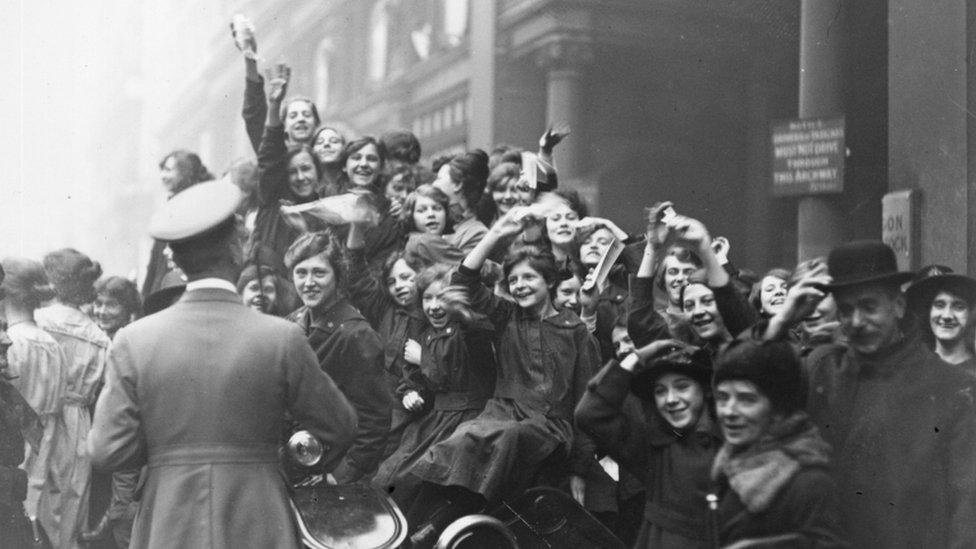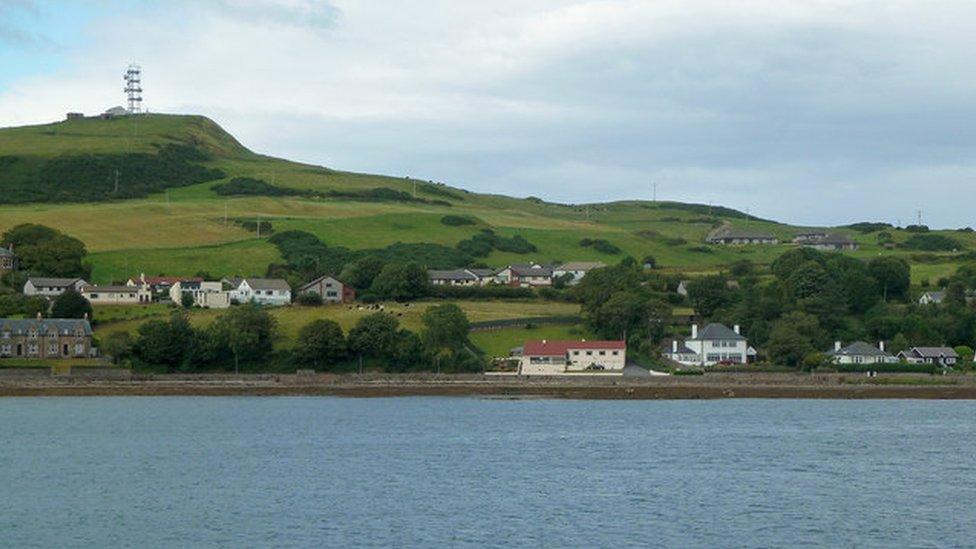How news of the Armistice broke in Scotland
- Published

The signing of the Armistice agreement was celebrated across the UK
Today instant news is taken for granted. Broadcasting and, more recently, the internet means that news spreads quickly.
In 1945, millions sat by their wirelesses as World War Two drew to a close. Winston Churchill's speech, proclaiming the end of the war in Europe, was the signal for those who were not already rejoicing in anticipation of peace to begin their celebrations.
But in 1918 news of the the Armistice that ended World War One trickled down in a way which may seem slow to us but which was actually fast for the time, thanks to the new technology of wireless communications.
It was, of course, the age just before the dawn of broadcasting - the public followed the war through newspapers and queued up at the pictures to gain glimpses of the fighting in silent newsreels.
'Joyful sound of victory'
Wireless, at this time, was not the archaic word for radio - it meant sending morse code messages over the airwaves instead of down a wire.
Now a fascinating story has come to light about how news of the Armistice reached one of the most isolated parts of the British mainland - Campbeltown, near the Mull of Kintyre.
A cutting from the local newspaper, external, the Campbeltown Courier, describes how the historic news was first delivered in a morse code message to shipping, with the crew of one vessel taking the message to the pierhead in Campbeltown Loch.

News of the Armistice was picked up by a ship in Campbeltown Loch, before being taken to the mainland
The news, the paper said, arrived at about eleven o'clock - but it does not say whether this was before or after the official cessation of hostilities at precisely 11am on 11 November 1918.
The report in that week's paper read: "A wireless message was the first medium through which the great news came and it was at once made known ashore, a copy of the telegram being sent to Mr Ross Wallace at the Steamboat Office.
"There was a rush for the pierhead where the welcome announcement - "Armistice signed. Hostilities suspended" - was displayed on the Weigh-house window after Mr A Ollar had read it to the assembled throng.
"Having got the authentic information the joyous crowd hurried away in all directions, spreading the joyful sound of Victory and approaching Peace as they went... The outlying districts quickly learned the heartening intelligence and there was general rejoicing."
Less than 21 years later, of course, Britain was at war again.
By then radio broadcasting had become established and millions, from the centre of London to the most isolated parts of the Highlands, listened together in silence as Neville Chamberlain announced that "this country is at war with Germany".